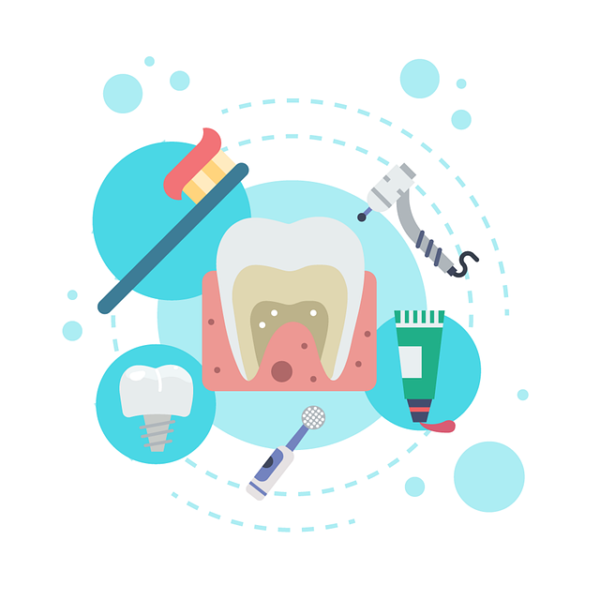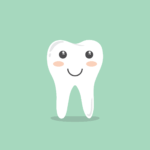TWENTY DENTAL OPERATION, BEFORE AND AFTER
in General, Wisdom Teeth
WHAT SHOULD YOU DO BEFORE A WISDOM TEETH OPERATION?
Do your routine oral care: Before wisdom tooth surgery, brush your teeth, floss and clean your tongue. You will be able to do these in a very controlled manner for a few days after the operation.
Prepare yourself a rest area: Before you leave the house, turn one of the rooms into a relaxation area. You can keep things like water, pillows, TV, DVD player, music in your recovery area.
Stock up on ready-made food: There are many recipes on the internet that are suitable for consumption after a wisdom tooth operation. But the thing is, you may be tired after surgery. So, if you don’t have someone to cook for you at home, our suggestion is to prepare soft foods before the operation, such as bone broth soup and blended vegetables, as much as you can eat for several days.
RECOMMENDATIONS FOR YOUR COMFORT DURING A WISDOM TEETH OPERATION
Bring a blanket: In some scientific studies, sleeping under a heavy blanket has been shown to reduce anxiety. Of course, ask your dentist first if there is such a blanket.
Avoid rapid breathing: Breathing large amounts of carbon dioxide can cause tension and dizziness.
Come with someone close to you who can support you: Not coming to the procedure alone will make you more comfortable in terms of psychology.
Wear comfortable and loose clothing: If an intravenous injection is to be administered, short-sleeved clothing will provide comfort. Do not forget to bring a blanket or cardigan with you, both to avoid feeling cold and to prevent the surgical gown from sticking to your chest. A comfortable sweatpants will make the process much easier for you.
AFTER OPERATION
If sedation or general anesthesia is applied, you will be taken to the recovery room after the operation. If you are given a local anesthetic, you will likely have the short-term recovery in the dentist’s chair.
Ask your dentist or maxillofacial surgeon whether stitches were used in the operation (or ask the person who came to pick you up). A few days after surgery, many people feel protruding sutures in their mouths, think they are food bits and touch them with their tongue. Sometimes, when patients look in the mirror, they see gray, black, green or blue threads and start to worry. If you have stitches in the operation, learning this from the very beginning will prevent you from worrying or doing something wrong afterwards.
After the operation is complete, you will be kept under observation for a short time. When your breathing returns to normal and your bleeding stops, you are free to return home.
HOME
Keep your head high for the first three days: The most important thing at home is to keep your head high! Remember, you have a healing wound on your face. So, never let your head be below your heart level for the first 3 days. Keeping your head elevated will greatly benefit your healing process.
Do not use straws, whistles, or blows: sip the water. Do not swallow vigorously, spit or whistle. These movements cause non-healing tooth extraction gaps. Avoid blowing your soup.
Do not spit: Some blood leakage may occur on the first day after the operation. But don’t spit! Spitting may dislodge the blood clot formed at the place where the wisdom tooth was removed, causing the formation of an unhealed tooth extraction area. Instead, regularly replace the gauze on the surgical site as directed by your dentist or maxillofacial surgeon.
Do not smoke: Smoking can also cause non-healing tooth extraction (alveolitis).
Ice, ice, ice: Ice packs that you place on the outside of your cheek will be very useful. But do not keep ice for more than 30 minutes at a time without a cloth or napkin in between. In this case, you can cause an ice burn on your face.
Be careful while brushing your teeth: We recommend that you brush your teeth very carefully for 2-3 days after the operation. You can gently brush the teeth in front of it without putting pressure on the operation area.
Drink plenty of warm water: Staying hydrated is of great importance in the healing process.
Do not consume solid foods for the first 24 hours: You can drink warm soup or fruit juice. High sugar foods are not suitable for the healing process. After the first 24 hours, you can start consuming soft foods such as apple puree, yogurt and pasta. At first, take the chewing movement slowly.
Do not rinse your mouth with salt water: Many websites recommend rinsing your mouth with salt water 24 hours after the operation. Never do this. You can start doing this slowly after the 4th day. Although salty water provides improvement, it may damage the area where the operation is performed and cause the formation of an unhealed tooth extraction area.
Limit your physical activities: It is best to avoid even lifting your backpack. Even jobs that require a slight amount of force can dislodge the blood clot formed in the operation area, causing the bone to become open and a painful tooth extraction area that does not heal. Resting is the most important part of healing. It is best to have a family member or friend help you at home as much as possible.
UNDER WHICH SITUATIONS YOU SHOULD CALL YOUR DENTIST OR JAW SURGERY?
The following symptoms may indicate serious situations requiring immediate attention. If you experience one or more of these symptoms, be sure to call the emergency number of your dentist or maxillofacial surgeon:
Difficulty swallowing or breathing
Excessive bleeding (leaking blood is normal)
Inflammatory discharge in or around the area where the wisdom tooth was removed.
Any tingling or loss of sensation
High fever
Blood or pus in a runny nose
Unbearable pain that the pain medications prescribed for you do not work
Swelling that gets worse after 2-3 days



